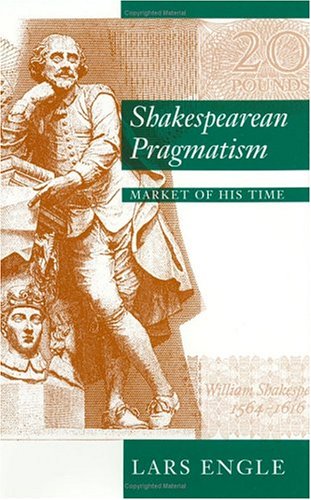Just as Shakespeare's theatre was an economic gamble, subject to the workings of a market, so the plays themselves submit actions, persons, and motives to an audience's judgement. Such a theatrical economy, Lars Engle suggests, provides a model for the way in which truth is determined and assessed in the world at large - a model much like that offered by contemporary pragmatism. To Engle, the problems of worth, price, and value that appear so frequently in Shakespeare's works reveal a playwright dramatizing the negotiable nature of perception and belief - in short, the nature of his audience's purchase on reality. This innovative argument views Shakespeare in the context of contemporary pragmatism and to shows that Shakespeare in many ways anticipated pragmatism as it has been developed in the thought of Richard Rorty, Barbara Herrnstein Smith, and others. With detailed reference to the sonnets and plays, Engle explores Shakespeare's tendency to treat knowledge, truth, and certainty as relatively stable goods within a theatrical economy of social interaction. He shows the playwright recasting kingship, aristocracy, and poetic immortality in pragmatic terms.
As attentive to history as it is to contemporary theory, this book mediates between current and traditional accounts of Shakespeare.
- ISBN10 0226209423
- ISBN13 9780226209425
- Publish Date 15 November 1993
- Publish Status Active
- Publish Country US
- Imprint University of Chicago Press
- Format Hardcover
- Pages 276
- Language English
- URL http://wiley.com/remtitle.cgi?isbn=9780226209425
